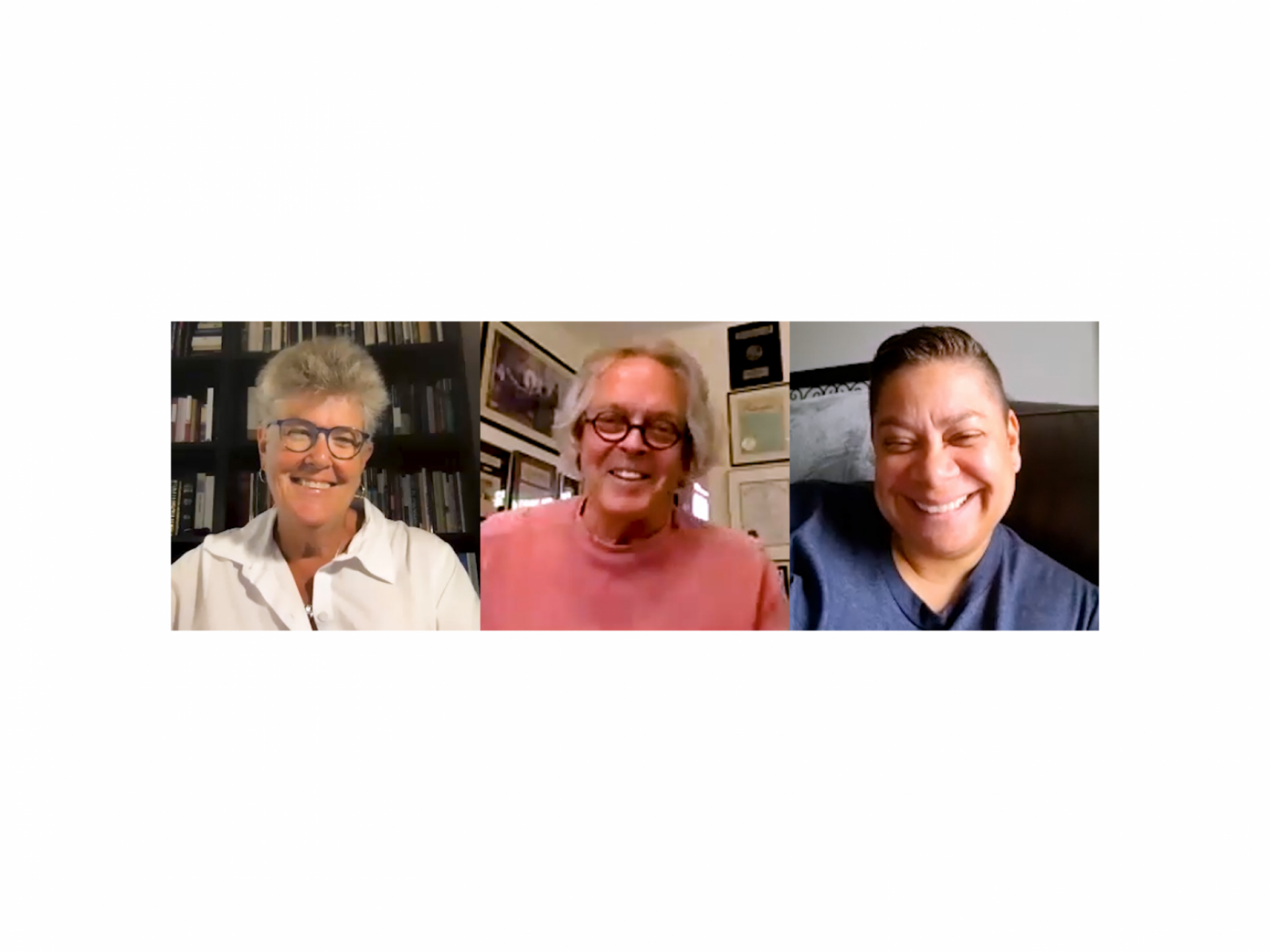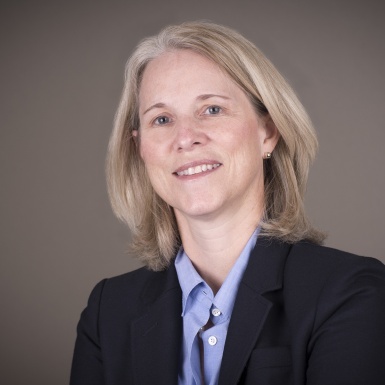Giving Voice to What Matters Most: Dementia's Not What You Think It Is

Sign up and receive information on the latest news and updates.
UsAgainstAlzheimer’s “Giving Voice to What Matters Most” series features the stories of people who are living with dementia or at high risk for the disease. Tracey Lind, Daisy Duarte and Greg O’Brien recently met by Zoom to talk about issues that are important to them. The three friends want to help others understand what it’s like to have dementia or be at high risk. In part four of the series, Tracey, Daisy and Greg talk stigma and misconceptions about dementia. We hear first from Tracey Lind.
Tracey Lind: There are a number of misconceptions and stigma related to dementia. One is that all is lost once you get a dementia diagnosis. And I think as Greg and I demonstrate, that’s not true. There are lots of ways you can still continue to have a really full life even with dementia. Secondly, there’s a misconception that self-care can’t change the course of the disease, so you might as well give up and give in. And I think we are learning that self-care can change the course of this disease. Maybe not the end result, but certainly the quality of life and perhaps even the length of life. Thirdly, those who are managing their disease through self-care often get doubted. Those of us who are trying to speak up about dementia first-hand, people say, “Well, if you can do this, do you really have it?” And that’s like being punished for trying to do well. What people don’t see is what it takes out of us to do this kind of advocacy and truth telling so that you the viewer can hear it first-hand.
People think everyone with dementia is at the end stage. When we think about dementia, Alzheimer’s, Frontotemporal Dementia, Lewy Body, we think about people in wheelchairs unable to function, staring into space. And those of us in the early to mid-stages aren’t like that. We also think that everybody who has dementia has Alzheimer’s and that’s not true. It’s not Alzheimer’s and related dementias. There’s a number of forms and dementia is a condition caused by many kinds of brain disease, one of which is Alzheimer’s. And we think everybody’s dementia is the same and that’s not true. If you met one person struggling with cognitive impairment or brain disease, you’ve met one person. And as you can see by Greg and me and Daisy – and I hope it won’t be true for Daisy, but I guess it probably, maybe her at some point too – we’re all different.
So I think when you meet somebody with dementia, you need to be kind and considerate, and leave some of your misconception and biases on the sidelines, especially during this time of COVID-19 when so many of our friends who are living with dementia are really confined, and especially if they’re in assisted living or memory units, are really lonely and the last thing they need to be is really judged.
Greg O’Brien: First of all, Tracey said it better than anyone could say it so. Not only are stereotypes wrong. But it prevents us in terms of creating a critical mass because people don’t want to talk about Alzheimer’s until they go to your wake and then they talk about it. As I said before, there are people at different stages, 20-25 years running this course. My mother we talked a lot and she taught me the need to speak out. But people are afraid to talk about it, they’re afraid they’re going to get fired. So, we haven’t created the environment where it’s comfortable.
Daisy Duarte: To be honest, the Latino family, Latino culture itself, they sweep everything under the rug. You start forgetting stuff they constantly think it’s you’re going crazy, you’re crazy, you don’t have memory loss. So, you go on for years of hearing that. Then you start believing you’re crazy when indeed you do have a disease that’s going to take you, going to rob you of everything.
I’m very proud to be involved with LatinosAgainstAlzheimer’s because I do get to talk to a lot of families that think that way. And some I have changed their conception of what they believe in. A lot of them believe, “Oh my uncle was crazy, so now my cousin’s crazy.” And it just goes down the line. They just think it’s crazy. And you’re not, you have a disease that no one’s looked into and they haven’t joined a clinical trial. They haven’t done anything to get the word out. So that’s why I love that I stand for the Latino community as a female, not only as a caregiver, but as a female in clinical trials because I feel that one voice can make a difference.
Greg O’Brien: Early detection will lead to a cure. And it will free people up to talk about the disease.
Tracey Lind: And early detection and early diagnosis will lead to a higher quality of life for people who are living with brain disease. And you know what, denial, it doesn’t make it go away.
UsAgainstAlzheimer’s “Giving Voice to What Matters Most” series is made possible thanks to the generous support of Shawn Taylor and KPB Corporation.
